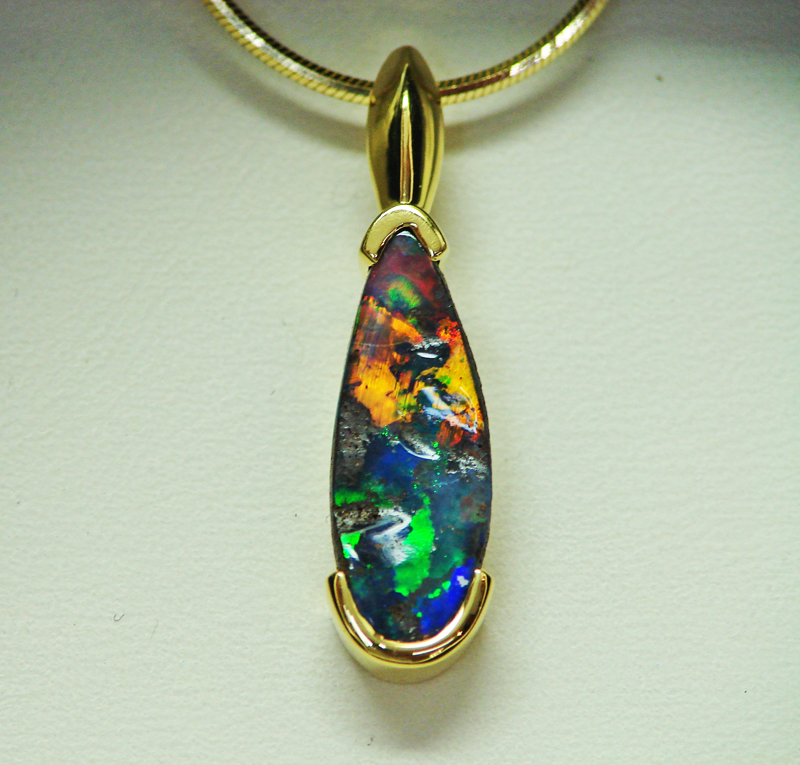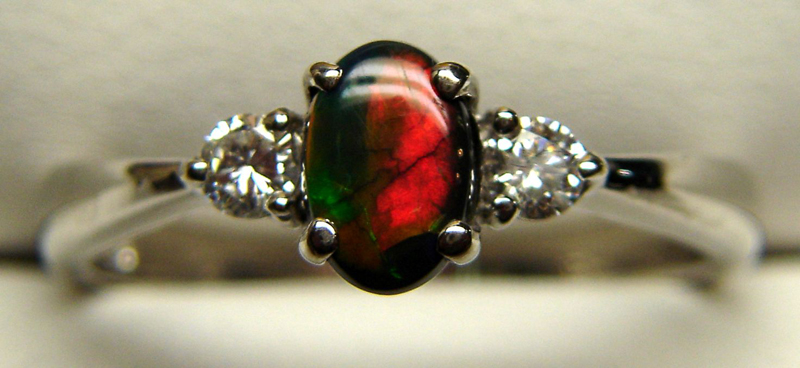Opening Hours
Mon -Thur
9.30am - 5pm
Friday
9.30am - 6.00pm
Saturday
9.30am -5pm
Sunday
12pm - 5pm
Australian Opal
"Opal is the only gemstone that holds all the colours of the spectrum. It is more rare than diamonds"
We have a large range of Opal jewellery available see photo's below for some of our range.
 18ct yellow
gold solid Opal pendant
18ct yellow
gold solid Opal pendant
Solid Opals
18ct white gold solid Opal ring
18ct
yellow gold Solid opal pendant
18ct
White gold solid Opal and Diamond pendant
 18ct white gold solid Opal and Diamond ring
18ct white gold solid Opal and Diamond ring
What is Opal?
Opal is one of the world's most rare and valuable gemstones, and it comes in every colour of the spectrum.
Opal is made of tiny, microscopic spheres of silica. It is these tiny spheres that give opal its amazing colours, by breaking white light up into rays of different colours.
When white light enters a precious opal, it hits the spheres of silica. The spheres split light into rays of different wavelengths, which we see as different colours. The colours and patterns in an opal are determined primarily by the size and arrangement of the silica spheres it contains.
Where does opal come from, and how does it form?
Opal forms within spaces in rock. It is found within sedimentary rocks, such as sandstone; and in volcanic rocks that have hardened from molten lava with air bubbles trapped inside.
The basic ingredients for opal are water and silica - but the exact conditions required for opal formation are still not fully understood. On the extremely rare occasion that conditions are just right, silica collects in spaces within the rock and gradually hardens to form opal. The opal takes the shape of the space it is filling. Where the rock cavities once contained plant or animal remains, opalised fossils are formed.
More than 95 per cent of the world's opal is found in Australia. Most of this opal is found in the Australian outback, around the margins of an ancient inland sea that once covered almost one third of Australia - around 110 million years ago, during the Cretaceous period. The opal is found in small pockets between layers of sandstone in clay beds that once formed the floor of this great lost sea.
![]()